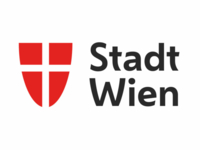Recommendations on how customer participation can be more firmly established in the administrative context.
Background
The St. Pölten UAS was commissioned by the City of Vienna to conduct a study that explores the possibilities of better integrating and involving customers in the administration process. The aim was to initiate innovations for customer participation in public administration (from user-responsive to user-driven services) and to develop adequate forms of participation. The research was carried out at the interfaces of user participation and self-organisation, which have become increasingly relevant for social work in recent years. The results of this project will be incorporated into the conception and implementation of the project “Innovative Client Participation” and will primarily benefit the municipal departments of Social Affairs, Social and Health Law (MA40), and Immigration and Citizenship (MA35).
Project Content and Objectives
The global objective of the study was to provide an overview of the possibilities for involving customers of specific municipal departments more closely in official procedures and processes. The project was based on already tested or proven practices from Austria and abroad (good practice examples). Furthermore, when it came to the improvement suggestions, special attention was paid to the perspective of the customers (without, however, neglecting the employees’ point of view).
The main steps of the project were:
- Compilation of an overview regarding suitable forms of customer participation in the administration field on the basis of successful examples in Austria and other European countries (good practice examples).
- Survey of how potential customers of the municipal departments MA 40 and MA 35 assess selected forms of participation.
- Critical evaluation of the results of the surveys and selected forms of participation by the participating researchers plus recommendations derived from this evaluation process.
Methods
Literature research, telephone and e-mail surveys in Austria and abroad as well as interviews with focus groups (customer groups of the municipal departments MA 40 and MA 35) were carried out.
Results
The findings of the study show that effective customer participation depends not so much on the model applied but rather on certain key factors.
Taking these key factors into account, the following recommendations can be given:
- It needs a culture where participation is firmly established. To achieve this, it is necessary to inform all groups of people involved and to convince them of the significance and positive effects of participation processes.
- The goals, processes, tasks, and scope of participation projects should be clearly defined and communicated. By doing this, expectations from all sides can be clarified in advance and allowing realistic assessments on what needs to be done.
- Involving all stakeholders in the development, implementation, and evaluation of processes and projects is essential for their success. Employees need the same amount of attention and resources as customers in these processes. However, the special circumstances of customers should receive great attention. Professional support, comprehensive preparation, extensive understanding of the process, and ongoing evaluation are indispensable for successful projects.
- It is of vital importance to create opportunities for working out solutions in a collaborative manner (co-creative processes), to gain positive experiences with processes of co-creation, and to recognise their added value. This can be an incentive for further joint projects and make people aware that more communication, exchange, and participation can lead to better outcomes, conditions, and solutions for everyone.

